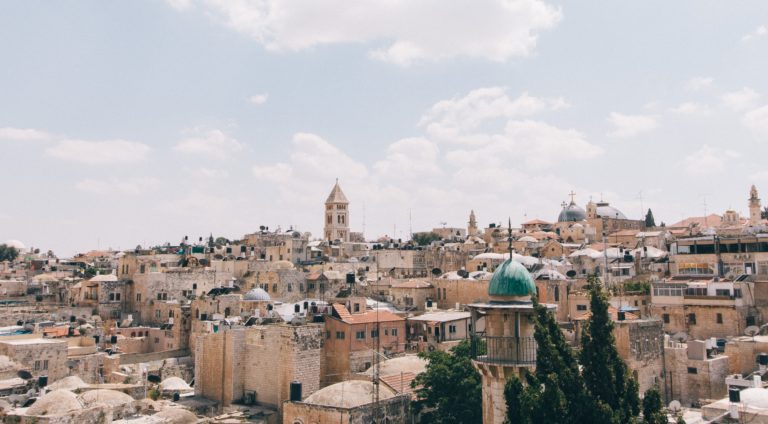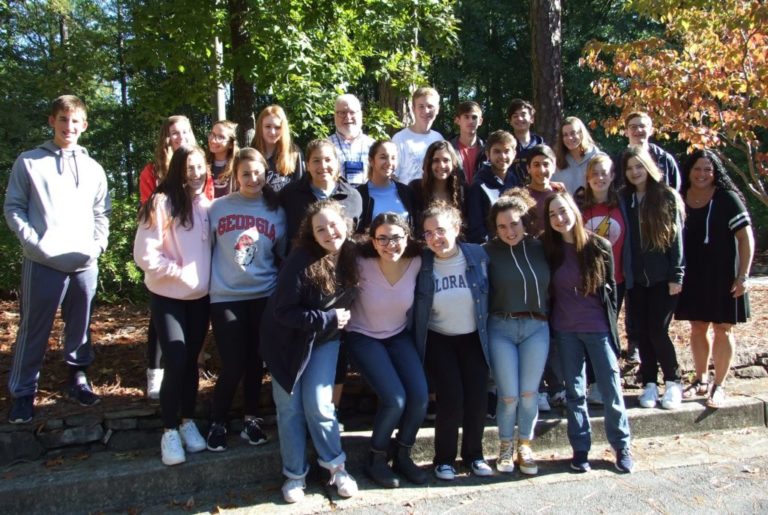

As JumpSpark considers its role in expanding teen Israel education in Atlanta, we find ourselves at the forefront of a changing approach to this topic for teens today.
In December 2019, I had the opportunity to travel to Israel with The Jewish Education Project (TJEP) and other Jewish Israel educators from cross-denominational and political perspectives to rethink how we educate Generation Z about Israel. Since today’s youth are increasingly progressive and questioning the conflicts within Israeli society, we need to adapt the traditional Israel trip to better meet teens’ understanding and connection with Israel through a multi-narrative approach that gives a voice to the different ethnic groups that make up the tapestry of Israel.
What the Data Says
In TJEP’s comprehensive Gen Z report, data shows a clear generational shift in how kids see the Jew in today’s society – teens care about all people, but they are not tribalist. They are asking if being Jewish is good for global humanity, not just their people. The idea of Jewish peoplehood is much less prevalent among teens today than older adults.
Other major concerns of teens include:
- Tikkun Olam: teens responded that tikkun olam feels like “white privelege” to them and reinforces Jews as an oppressive white minority. They are looking for a more nuanced approach to volunteering that includes community building and working with communities to fight for social justice and equality in our society.
- Israel Connection: teens have a positive relationship towards Israel and see it as important in some way. However, the less connected the teen is to the organized Jewish community, the less they felt Israel was important. The organized Jewish community feels Israel is central to Jewish identity in the US, but is Israel the best way to be reaching people on the margins?
Download the full report
Exploring the Multi-Narrative Approach
Our first encounter with a multi-narrative approach to Israel education was with the community of Israelis from Ethiopian descent. We had the opportunity to hear from three prominent Israelis from Ethiopian descent who all work with the community’s absorption into Israeli society in various ways.
To frame the session, we discussed the importance of talking about race in Israel for teens today. As a generation growing up in the wake of police brutality towards black and brown folks and mass incarceration in the US, issues of race relations are on their minds. Through speaking with the community, we learned that in Israel, there are similar acts of police brutality and discrimination towards Israelis of Ethiopian descent. Although we cannot fully compare the issues in these two countries, sharing this narrative in Israel with teens could allow them to consider their role as Jews in Israel and the US in improving race relations and creating justice and equity for all.
The next day, we embarked on a dual narrative tour of Bethlehem from both an Israeli and Palestinian perspective. We observed the Israeli West Bank barrier that, from the Israeli narrative, serves as a security barrier against terrorism, and, from the Palestinian side, services as a racial segregation wall. To hear both sides allowed us to better understand the nuance behind the Israeli-Palestinian conflict, and, ultimately, make a more informed opinion about our own beliefs. As teens today are increasingly progressive and see Israel as an oppressor in this conflict more and more, we need to not only talk about the conflict with the teens but show both sides to allow them to create their own stance and a better understanding of the complexity behind the situation.
Questioning and critiquing is a Jewish practice that can be seen throughout our literature and in our traditions today. While Israel travel and education can no doubt light the spark for further Jewish identity exploration, it also allows teens to engage in this Jewish practice of questioning and exploring the complexities behind a situation. To truly meet teens where they’re at, we need to address issues like the Israeli-Palestinian conflict and racism from a multi-narrative approach to add nuance and complexity to a teen’s views of the land, people, and State of Israel. Only then can we help teens discover their own stance on Israel and support their plight for justice and equity in our world. ~ A.F.



